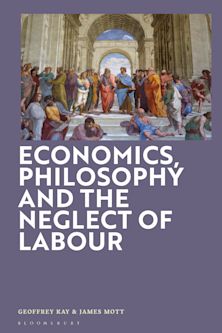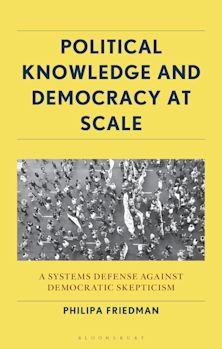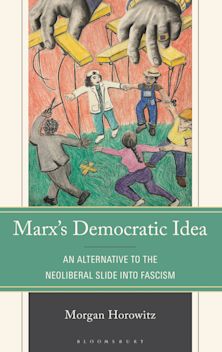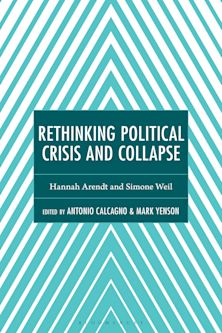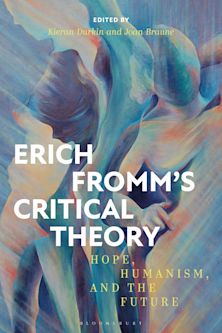Contemporary Philosophy and Social Science
An Interdisciplinary Dialogue
Contemporary Philosophy and Social Science
An Interdisciplinary Dialogue
Description
How should we theorize about the social world? How can we integrate theories, models and approaches from seemingly incompatible disciplines? Does theory affect social reality?
This state-of-the-art collection addresses contemporary methodological questions and interdisciplinary developments in the philosophy of social science. Facilitating a mutually enriching dialogue, chapters by leading social scientists are followed by critical evaluations from philosophers of social science. This exchange showcases recent major theoretical and methodological breakthroughs and challenges in the social sciences, as well as fruitful ways in which the analytic tools developed in philosophy of science can be applied to understand these advancements.
The volume covers a diverse range of principles, methods, innovations and applications, including scientific and methodological pluralism, performativity of theories, causal inferences and applications of social science to policy and business. Taking a practice-orientated and interactive approach, it offers a new philosophy of social science grounded in and relevant to the emerging social science practice.
Table of Contents
Introduction, Michiru Nagatsu (University of Helsinki, Finland) and Attilia Ruzzene (University of Bergamo, Italy)
Part I: The plurality of approaches, disciplines and theories
1. Integration and the disunity of the social sciences, Christophe Heintz (Central European University, Hungary), Mathieu Charbonneau (Central European University, Hungary) and Jay Fogelman (Central European University, Hungary)
Commentary: Plurality and Pluralisms for the Social Sciences, Raffaella Campaner (University of Bologna, Italy)
2. The Eroding Artificial/Natural Distinction? Some Consequences for Ecology and Economics, C. Tyler DesRoches (Arizona State University, USA), S. Andrew Inkpen (Dalhousie University, Canada), Tom L. Green (Universidad del Rosario, Colombia)
Commentary: Obstacles to interdisciplinary research: metaphysical, cognitive and axiological, Michiru Nagatsu (University of Helsinki, Finland)
3. Team Agency and Conditional Games, Andre Hofmeyr (University of Cape Town, South Africa) and Don Ross (University of Cape Town, South Africa)
Commentary: Explaining prosocial behaviour: team reasoning or social influence?, Cédric Paternotte (Sorbonne University Paris, France)
Part II: From methodological choice to methodological mix
4. The Methodologies of Behavioral Econometrics, Glenn W. Harrison (Georgia State University, USA)
Commentary: Reflections on Decision Research and its Empiricism: Four Comments Inspired by Harrison, Nathaniel T. Wilcox (Chapman University, USA)
5. Reasons for Using Mixed Methods in the Evaluation of Complex Projects, Michael Woolcock (Harvard University, USA)
Commentary: Why Mixed Methods Are Necessary for Evaluating Any Policy, Nancy Cartwright (Durham University, UK)
6. From an individual to a holistic lens: Reassessing marketing models to deliver impact, Charlotte Vangsgaard (ReD Associates)
Commentary: Unity and Disunity in Consumer Behaviour Research, Attilia Ruzzene (University of Bergamo, Italy)
7. The Fish Tank Complex of Social Modelling on Space and Time in Understanding Collective Dynamics, Tommaso Venturini (French Institute for Research in Computer Science and Automation, France)
Commentary: Versioning and structural change, Petri Ylikoski (University of Helsinki, Finland)
8. Social Statistics Using Strategic Structuralism and Pluralism, Wendy Olsen (Manchester University, UK)
Commentary: Heterogeneity, plasticity, and mechanisms: Comments on Olsen, Daniel Little (University of Michigan-Dearbon, USA)
Part III: Explanation; Theorizing; Performativity
9. Causal Mechanisms and Qualitative Causal Inference in the Social Sciences, David Waldner (University of Virginia, USA)
Commentary: An Alternative Hypothesis about Process Tracing: Comments on “Causal Mechanisms and Qualitative Causal Inference in the Social Sciences”, Daniel Steel (University of Michigan-Dearborn, USA)
10. How to theorize? On the changing role and meaning of theory in the social sciences, Mikael Carleheden (University of Copenhagen, Denmark)
Commentary: Social Theory and Underdetermination: A Philosophical History and Reconstruction, Stephen Turner (University of South Florida, USA)
11. Assembling economic actors: time-varying rates and the new electricity consumer, Daniel Breslau (Virginia Tech, USA)
Commentary: Assembling the economic actors, Nicolas Brisset (Université Côte d'Azur, France)
Index
Product details

| Published | 30 May 2019 |
|---|---|
| Format | Ebook (PDF) |
| Edition | 1st |
| Extent | 408 |
| ISBN | 9781474248778 |
| Imprint | Bloomsbury Academic |
| Publisher | Bloomsbury Publishing |

ONLINE RESOURCES
Bloomsbury Collections
This book is available on Bloomsbury Collections where your library has access.















